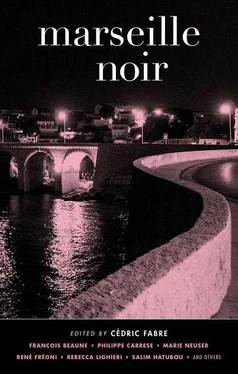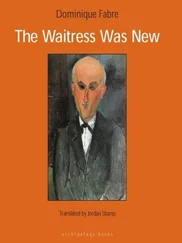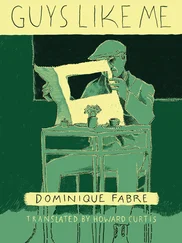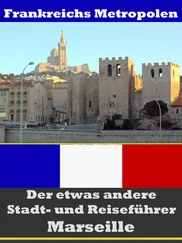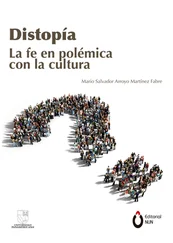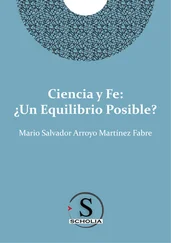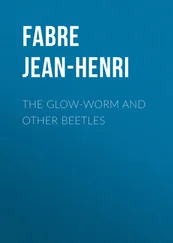Cédric Fabre - Marseille Noir
Здесь есть возможность читать онлайн «Cédric Fabre - Marseille Noir» весь текст электронной книги совершенно бесплатно (целиком полную версию без сокращений). В некоторых случаях можно слушать аудио, скачать через торрент в формате fb2 и присутствует краткое содержание. Год выпуска: 2015, Издательство: akashic books, Жанр: Крутой детектив, на английском языке. Описание произведения, (предисловие) а так же отзывы посетителей доступны на портале библиотеки ЛибКат.
- Название:Marseille Noir
- Автор:
- Издательство:akashic books
- Жанр:
- Год:2015
- ISBN:нет данных
- Рейтинг книги:5 / 5. Голосов: 1
-
Избранное:Добавить в избранное
- Отзывы:
-
Ваша оценка:
- 100
- 1
- 2
- 3
- 4
- 5
Marseille Noir: краткое содержание, описание и аннотация
Предлагаем к чтению аннотацию, описание, краткое содержание или предисловие (зависит от того, что написал сам автор книги «Marseille Noir»). Если вы не нашли необходимую информацию о книге — напишите в комментариях, мы постараемся отыскать её.
Marseille Noir — читать онлайн бесплатно полную книгу (весь текст) целиком
Ниже представлен текст книги, разбитый по страницам. Система сохранения места последней прочитанной страницы, позволяет с удобством читать онлайн бесплатно книгу «Marseille Noir», без необходимости каждый раз заново искать на чём Вы остановились. Поставьте закладку, и сможете в любой момент перейти на страницу, на которой закончили чтение.
Интервал:
Закладка:
My parents are far away, and yet here nothing has really changed and my childhood is everywhere. When I got here I spotted two or three irrigation basins, the last surviving farms, and the canal we’d dive into every summer at the risk of drowning. The iron wheels of the trolley and the canal were my mother’s two nightmares. We used to swim with the current and grab onto a huge sluice gate at the last minute. If we missed it, we couldn’t get out: the walls of the canal were slippery with mud and much too high. We’d be trapped like a rat.
One day Maurice missed it, he was carried away in the current and sucked into the pipe. He disappeared into the tunnel under the road. They found his body two days later in another pipe at Plan-de-Cuques.
Perched in an olive tree, I see the canal gleaming. It twists and turns through the fields, disappears between the houses that didn’t used to exist, gleams again for a moment, very far off between two concrete giants, and loses itself in a vertical Marseille where the setting sun is exploding a million windowpanes. For three minutes, they fill up with blood.
Like every day, I take a break from picking at noon. I empty my basket of olives into big green plastic crates and go have lunch at the little café. I have my own table. The young waitress shows me to it with a little smile and a knowing look. How could she imagine that I’m lying in wait for a man so I can rip his heart out? A guy who orders the day’s special, has his coffee, and leaves discreetly to go out into an olive field can only inspire confidence. I always tip her two euros.
I can see the three other cafés on the square from my observation post. At the Bar du Centre we used to play foosball every night and howl with laughter, at Terminus we’d watch soccer games on a big screen, from the sidewalk seats of Café de la Poste we’d watch the girls go by as we sipped our milk grenadines.
A lot of stores’ signs have changed. The little Casino grocery has become Newspapers Tobacco; an electronics store has replaced the butcher’s; the wine merchant is gone. The Chez Georges barber shop has become a real estate agency. The Mazet patisserie, where I had the best rum baba in my life, is still there; the photography studio owned by the Cayrol family is still there too. Those are the two village institutions. Only the Cayrol son could recognize me despite my mustache and glasses. He has the portrait of each of us in his mind’s eye at every stage of our lives, in every class. He’s the village memory. If he turned up, I’d run straight to the bathroom or hide my head behind a newspaper.
It’s not the Cayrol son who I see all of a sudden, but the traitor. Yes, him, Franck, the man I’ve been waiting for, over a week now, the man I’m going to kill.
I don’t know if I said his name was Franck. For me, he doesn’t have a face anymore, no name, no past. He’s already dead.
He comes out of a magnificent gray Mercedes with black leather seats, double-parked right in front of my eyes. He walks into our restaurant on the other side of the street and comes out almost immediately. He starts the car and then walks back in three minutes later. I’ve never seen him so well dressed — in a navy-blue Lacoste jacket. A prince! For eight years, I was in hell.
I pay for my meal and take a short walk around the village. I have no problem spotting the luxurious Mercedes. He parks it on boulevard Fernand Durbec, where we grew up. I’ve got him.
I walk by our restaurant again. It’s no longer called Le Petit Farci but La Coupole. Why La Coupole? No idea. I think it’s pretentious, stupid, and it doesn’t make me hungry. It makes me think of some kind of meeting, or a sect.
I take a look at the menu of the day, written in chalk on a huge slate standing on the sidewalk.
Tartare of salmon with lemon juice and dill
Sea bass with basil and garlic pistou
Opera golden square cake
Orange and lemon cream
I’m staggered. I walk on. He went into semi-high cuisine and apparently it works. He doesn’t drive a little Twingo. He loves money like a shark loves blood. He’s got the money, he’ll have the blood.
To think that I held up a truck coming out of the Seita tobacco factory with two hundred thousand euros’ worth of cigarettes to buy myself a lousy apartment. The one I’d just spent eight years in measured fifteen square feet and stank of moist bread, disinfectant, and misery. And this piece of shit drives a Mercedes, dresses like a cabinet minister on vacation at Cap Ferret, and he’s screwing my wife.
I can see the steely eyes of the DA behind his glasses again: “Armed robbery, attempted homicide. We recommend fifteen years.”
I try to calm my hands by dropping olives into the basket. They vibrate all afternoon.
One evening when I was seven or eight, I climbed onto my mother’s lap and she began to read me The Count of Monte Cristo. For months, every evening I would sit on her lap as she read me the extraordinary story of that man locked up in the bowels of a dismal fortress for fourteen years. She read me the story of that man’s suffering and then his escape and his implacable vengeance on every one of the traitors who’d sent him away to rot in a cell below sea level.
For me, Edmond Dantès was the greatest, most beautiful man in Marseille. Justice wasn’t judges, DAs, and jailers, it was that man who’d learned philosophy underground and who defended life.
I saw him everywhere: in the streets, in my dreams, on the school blackboard. My mother’s voice reverberated throughout my body every night. I would put my head on her warm bosom and listen to the story of Edmond Dantès; I could hear my mother’s heartbeat, hear the sea pounding against the dark rocks of Château d’If.
I was in a field a few hundred yards from the kitchen where my mother used to take me on her lap every night, and I heard her voice, I felt all her gentleness, the enormous strength of her love. What had happened to me?
I picked olives all afternoon in the beautiful blond light in the hollow of the hills. I was alone and I was telling myself that if I didn’t have to kill a man, I would probably feel happiness right here, behind the pink house of Mademoiselle Niozelles.
I worked till night fell. As soon as the sun disappeared, the clouds became big red birds; a minute later, the birds were black.
I loaded my crates into Mademoiselle Niozelles’s old Renault van and drove them to the mill.
Every two or three days, I bring my olives to this modern mill; they weigh the contents of my crates, they give me a printout that details how many kilos my crop has increased every day. From dawn to nightfall, I can sometimes pick up to seventy kilos. When they’re violet and big as plums, my basket is always full.
I went home to a steep little street in the shadow of a church — downtown, as suburbanites say. I took a scalding shower and sawed off the butt and the double barrels of the twelve-caliber my father had hunted with all his life. I slipped a cartridge of buckshot into each barrel and went to bed. I fell asleep even before my head hit the pillow. And if I wanted to make a bad pun, I’d say I fell into a leaden sleep.
The next morning, I arrived at Mademoiselle Niozelles’s house with the daylight; her shutters were still closed. The grass was soaking wet under the trees. I chose the first olive tree the sun strikes on the highest terrace. It caught fire before my eyes and I felt the warm fingers of the first rays of sunlight on my shoulders.
Never had I been so calm. In the saddlebag of my old bike there was my father’s twelve-caliber and in its sawed-off barrels, two cartridges capable of ripping the head off of a hundred-kilo boar. The sky was clear, the horizon limpid on the Allauch side, and the Pilon du Roi was glittering above the hills.
Читать дальшеИнтервал:
Закладка:
Похожие книги на «Marseille Noir»
Представляем Вашему вниманию похожие книги на «Marseille Noir» списком для выбора. Мы отобрали схожую по названию и смыслу литературу в надежде предоставить читателям больше вариантов отыскать новые, интересные, ещё непрочитанные произведения.
Обсуждение, отзывы о книге «Marseille Noir» и просто собственные мнения читателей. Оставьте ваши комментарии, напишите, что Вы думаете о произведении, его смысле или главных героях. Укажите что конкретно понравилось, а что нет, и почему Вы так считаете.
